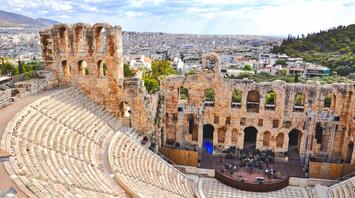Greece Suffers from Heatwave Leading to Closure of Archaeological Sites and Threat of Wildfires

Greece is currently experiencing an intense heatwave, causing significant disruptions for both residents and tourists. With temperatures reaching up to 43 degrees Celsius, authorities have taken strict measures to ensure public safety. Greece's most popular tourist attraction, the ancient Acropolis, along with other archaeological sites, has been closed during peak heat hours to prevent heat-related incidents.
For the past two days, the Acropolis has been closed from 12 to 5 pm, and other archaeological sites in Athens have been closing at the same hours. This decision was made following reports of tourists fainting while queuing to visit these historical landmarks. Last year, the Acropolis attracted over four million tourists, highlighting the site's immense popularity and the challenges of managing large crowds during extreme weather conditions. To better monitor and respond to the heatwave, Athens is using drones to track temperature variations across the city.
Temperatures at the Acropolis have reached 40 degrees Celsius, prompting authorities to take precautionary measures. Greece, one of Europe's most climate-impacted countries, is experiencing increasingly severe weather conditions, including last year's deadly wildfires and floods that caused significant damage to crops and infrastructure.
No European governments have issued travel warnings against visiting Greece at this time. However, travelers are advised to take precautions during the heatwave. Experts recommend staying indoors during the hottest parts of the day, wearing protective clothing to avoid sunburn when going outside, and maintaining proper hydration. Vulnerable populations, such as children and the elderly, should be particularly cautious during this period of extreme heat.



















